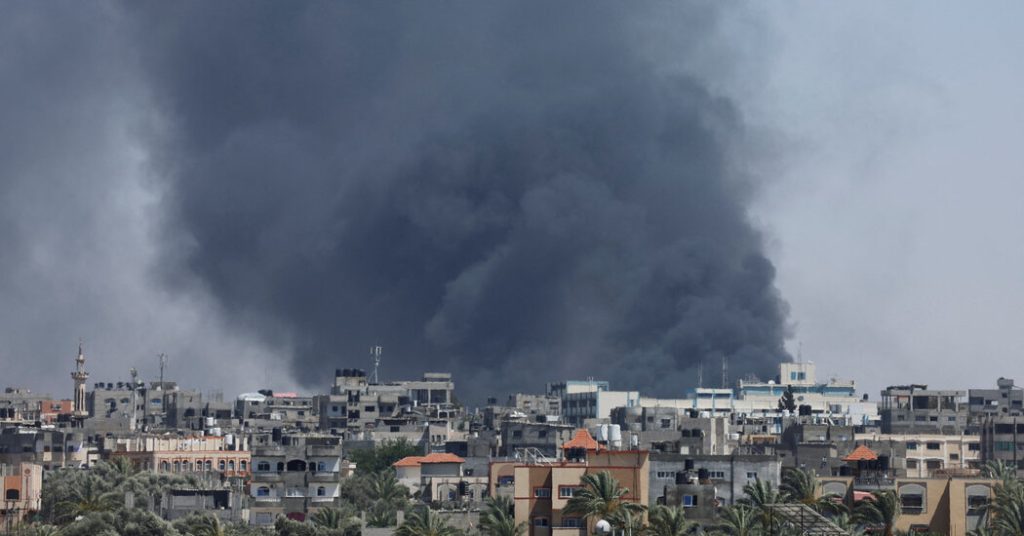The International Court of Justice has ordered Israel to immediately halt its military operations in the city of Rafah in southern Gaza, as it faces increased international condemnation for its conduct in the war. The court’s ruling puts pressure on Prime Minister Benjamin Netanyahu to reach a cease-fire deal with Hamas and allow the release of hostages held in Gaza. The court specified the need for open land crossings, particularly the Rafah crossing, for the provision of humanitarian assistance and services. Israel has controlled the Rafah crossing for over two weeks, limiting the entry of aid trucks into the enclave.
Despite the court’s orders, the Israeli government stated that its military actions are not causing the partial or complete destruction of the Palestinian population of Rafah. Some hard-line Israeli politicians called for the conquest of Rafah and an escalation of military pressure on Hamas until total victory is achieved. Hamas welcomed the court’s decision and urged the international community to pressure Israel to comply. However, the Palestinian armed group criticized the court for not ordering Israel to cease operating in Gaza entirely, stating that other Israeli actions were just as criminal and dangerous as what was happening in Rafah.
The court’s ruling comes amid mounting criticism of Israel’s conduct in the Gaza war, with accusations of mass displacement of Palestinians and civilian casualties. The ruling also follows announcements by three European countries to recognize a Palestinian state and the International Criminal Court seeking arrest warrants for Israeli and Hamas officials on charges of crimes against humanity. The case against Israel was presented to the International Court of Justice by a South African legal team, alleging that Israel’s actions in Rafah were leading to the destruction of Gaza and its people.
Israel has defended its military operations in Rafah as targeting Hamas fighters and denying claims of causing harm to civilians. The military has been advancing towards central Rafah and destroying weapons storage facilities and tunnel shafts. Human rights groups have welcomed the court’s order, emphasizing the humanitarian crisis in Gaza and the obstruction of aid by Israel. The ruling has been criticized by Israel’s parliamentary opposition leader, who highlighted the government’s failure to prevent damaging decisions by the court.
The court hearings are part of South Africa’s case accusing Israel of genocide, which was filed in December. Israel has rejected the claim as false and outrageous. The main case, dealing with the accusation of genocide, is expected to begin next year. The ongoing conflict in Gaza has raised concerns about the humanitarian situation and civilian casualties, prompting international legal action and calls for a cease-fire. The court’s decision adds to the pressure on Israel to reconsider its military offensive in Rafah and seek a peaceful resolution to the conflict.


